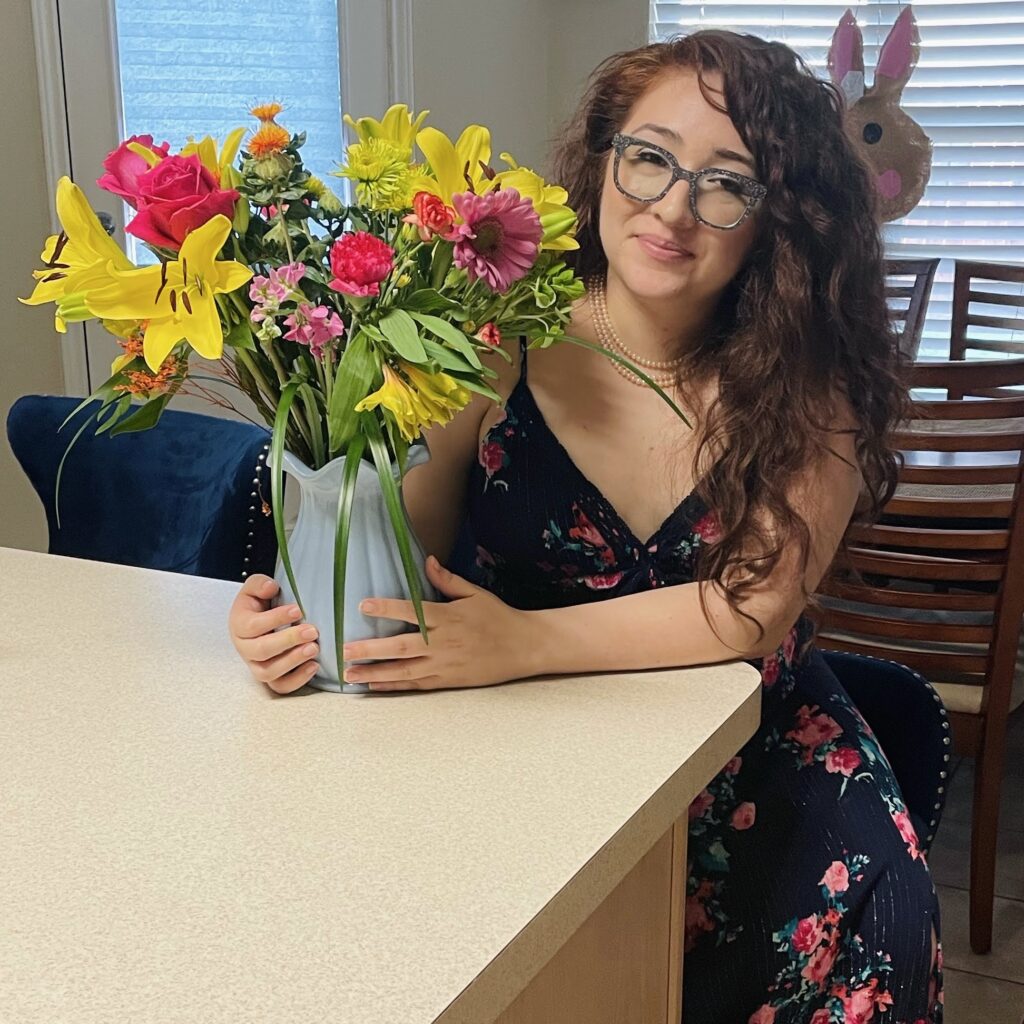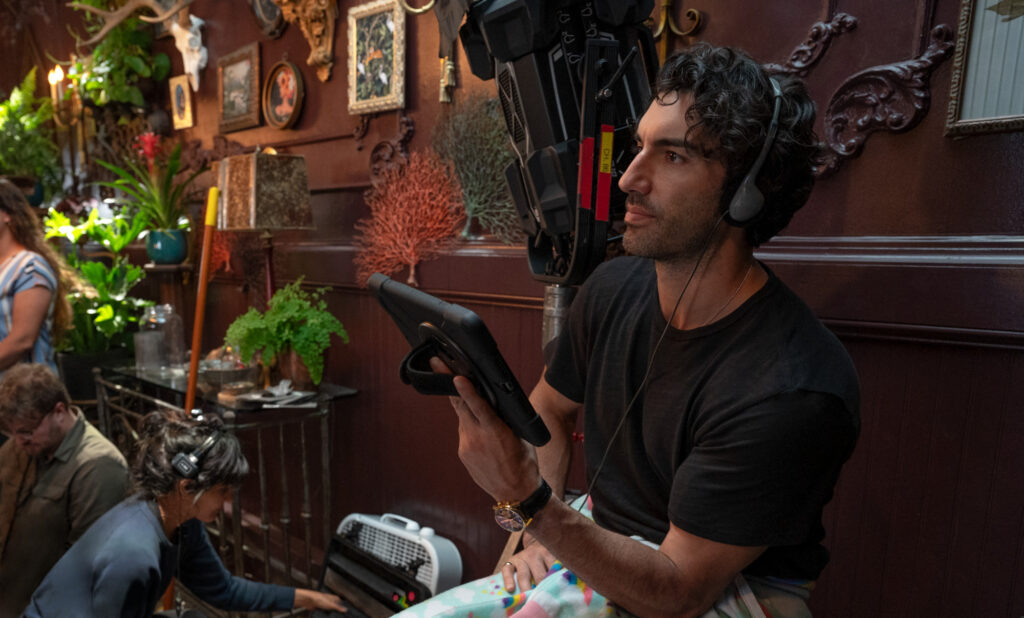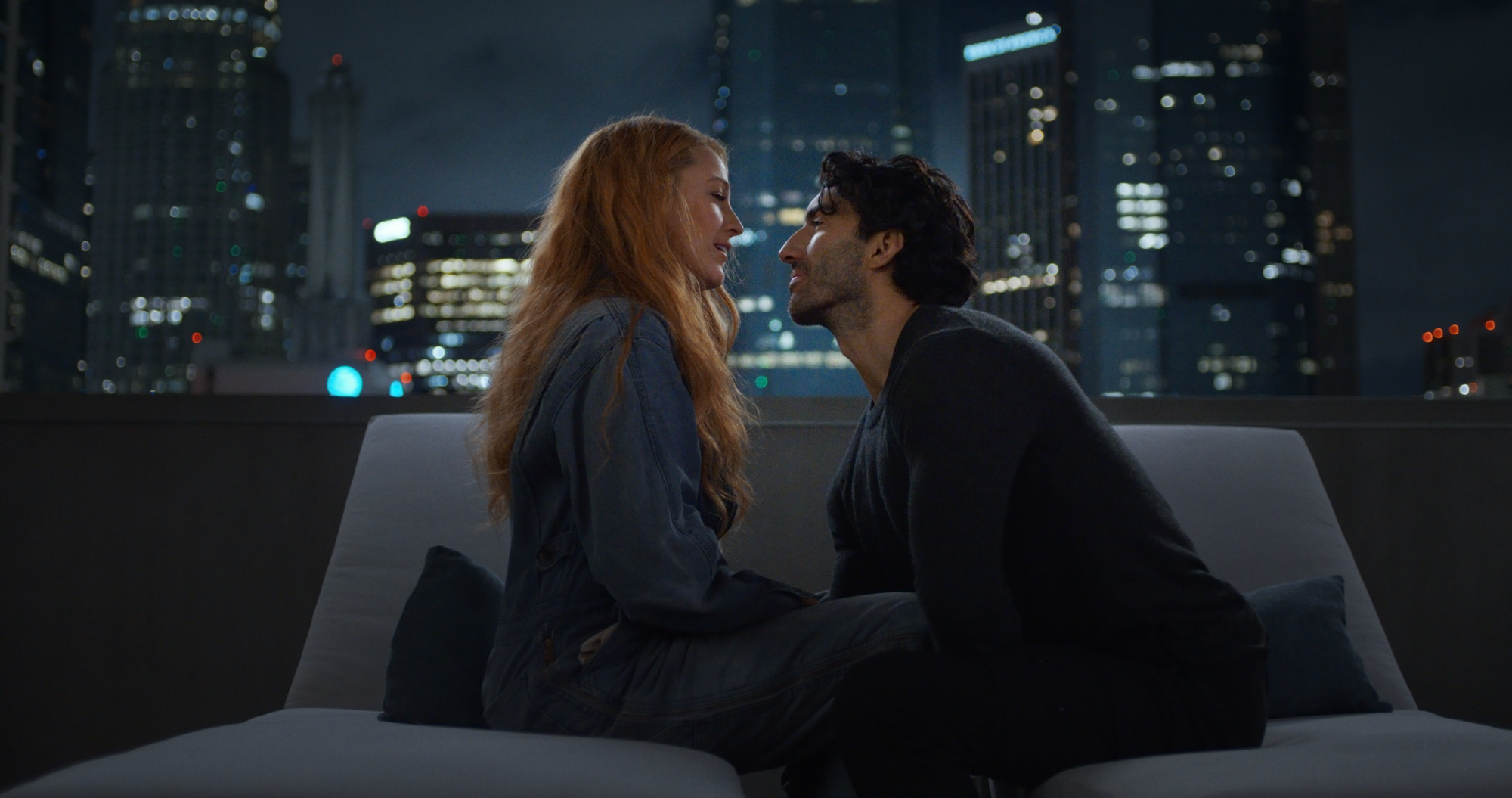The first Colleen Hoover film adaptation, It Ends With Us, is out and it is heartfelt. I’ll be honest and confess that I have not read the novel that this film is adapted from. I watched this film with no expectations but was warned beforehand that there were going to be depictions of domestic violence (DV) throughout the movie. It Ends With Us tells the story of Lily Bloom (Blake Lively), a woman who overcame a traumatic childhood riddled with DV and starts a new life in Boston, by opening her own flower shop. After getting into an abusive relationship with neurosurgeon Ryle Kincaid (Justin Baldoni), her first love, Atlas Corrigan (Brandon Sklenar), enters back into her life and shakes things up.
Even though there were plenty of romantic scenes and comedic moments in this film, it is not your typical romcom. On the contrary, I consider this movie both a Drama and a Romance. From its beginning there were different forms of violence throughout this film, even the iconic rooftop scene had red flags that foreshadowed the DV that Lily would experience later on in the film. This movie realistically shows how unhealthy relationships can escalate to domestic violence and gradually get worse. Then there was my main concern, would this film romanticize abusive relationships?
I had every right to be concerned about this, as it was something I lived for many years of my life. I speak from experience, as I too experienced abusive relationships in my teens and young adulthood. I still deal with the effects and costs from my experience, but I am in a much better place now. In 2023, I finally ended an abusive relationship and had to start over with my life. I decided to move back in with my parents and get back on my feet. It wasn’t an easy thing to do, as I was also working two jobs, interning, and studying in grad school at the time.

Having to suddenly make such a life-changing decision and uproot my life, for my safety, made it difficult to concentrate on school and meet all my work responsibilities and school commitments. I am not the kind of person to ask anyone for anything, but that was the first time I had to actually seek help and let others help me through that process. Now, at 29 years old, watching this film was like having a flashback. And the way Bloom needed support from her mother after everything she went through was something I related to all too well.
Unfortunately, my experience is not uncommon. In fact, DV is a public health issue. In the United States, one in four women and one in nine men have experienced DV. This issue has a strong impact on survivors’ lifelong health, opportunities, and well-being. So, seeing a female character survive DV, be so passionate about flowers, and have such a quirky sense of humor was refreshing to see at the movie theater. I felt totally seen. Bloom’s story was very similar to mine, and that’s how I know that It Ends With Us represented DV survivors well.
Bloom was not the only character to deal with DV, actress Amy Morton played Bloom’s mother who encouraged her daughter’s choice to leave Kincaid, even though she was silent about the abuse by her own husband. Another honorable mention in this film is Bloom’s best friend/sister-in-law, Alyssa (Jenny Slate), who gives her emotional support and encourages her to leave her brother after learning about the violence he committed. Last, but not least, there was Corrigan. He was the champion of this film because he protected Bloom by being a safe ear to talk to and giving her a safe place to stay as she transitioned out of the relationship.

I appreciated that It Ends With Us approached the DV issue from the survivor’s perspective. The film isn’t just about how Bloom was a victim, but also how, with the support of her loved ones, she was able to make it through her struggles during the process of leaving Kincaid. Baldoni was also the director of this film, but, even though his character in the film was the abuser, he didn’t approach DV in a romantic way. He took Bloom’s character as a survivor and depicted her experience in the film realistically. Under his direction, this film is an inspiration to other DV victims and survivors to end the cycle of abuse.
When he shows scenes of DV, it isn’t in a romanticized depiction of abusive relationships. It’s manipulative, deceitful, many times disrespectful, and as unhealthy as a relationship can get. It’s raw. In the aftermath of the abuse by Kincaid, Bloom is immediately met with gaslighting, a very common type of abuse that I myself dealt with a lot. She is manipulated into believing that the abuse was an accident, and makes that same excuse for him to her friends when they notice her injury. It’s taxing, both mentally and physically, on the victim to deal with an abusive partner, and they shouldn’t be chastised for not leaving sooner when it’s not that simple. It Ends With Us does an impeccable job of depicting abusive relationships. This film handled such a sensitive issue with care, and went above and beyond by partnering with NO MORE to showcase what DV looks like as accurately as possible, all while providing resources for victims/survivors who view the film.
Even though Corrigan is the first love interest, the film emphasizes Bloom’s unhealthy relationship with Kincaid, her strained relationship with her parents, and her bravery to finally end the cycle of abuse for herself and her daughter. So, no, this film did not romanticize DV. And even though there was a happy ending, I still cried my heart out. It was an exceptional movie based on Hoover’s #1 New York Times best seller. I want to see the sequel happen. I want to see how a film adaptation of It Starts With Us can depict how survivors often still deal with post-separation abuse by their former partners after they finally choose to leave. That is many survivors’ reality. It’s time to bring awareness.
It Ends With Us is now playing exclusively in theaters nationwide.












Thank you for openly sharing your personal experience. It takes strength and bravery to discuss this topic, and I hope it inspires others to seek help and break the cycle.